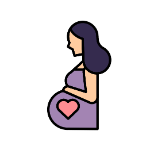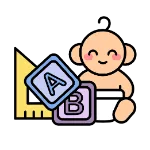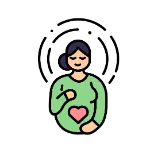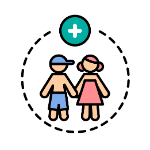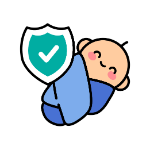
Q&A With Expert Series: Vaccinating Children Against Covid-19: Your Crucial Questions Answered
According to theStar news, a total of 169 710 children between the ages 5 and 11 years have already received their first dose of vaccine against Covid-19. Our Health Minister Khairy Jamaluddin said that the children's vaccination program will include a special vaccine formulation which is a two-dose regime of Pfizer given with an 8-week interval. However, ever since the announcement was made many parents are flooding their child’s pediatricians with questions about everything regarding the procedures.
(Q&A Expert Series With Dr. Rakhee)
We understand your worries regarding the effects the Covid-19 vaccine could pose on your munchkins’ well-being. Hence, we have filtered your every concern and question regarding the process and relayed it to our pediatric expert, Dr. Rakhee Yadav from Ara Damansara Medical Centre and Baby & Beyond Child Specialist Clinic Publika. Thanks to our expert that your utmost concerns are answered and now, all you have to do is gear up with your kids and get vaccinated! Before that, we are sure that your questions are here, so let’s get the answers for them, shall we!
Q1. What is the risk of severe Covid-19 infection in children? Why should children be vaccinated against Covid19?
At the time of writing, nearly 580,000 children aged 18 and under have been infected with Covid-19 since the pandemic hit Malaysia in 2020. Of the total, 269,773 involved children aged between 5 and 11. There have been 144 deaths due to Covid-19, among those aged 18 and below and of this, 31 were aged 5 to 11. While it is rare for children to become severely unwell or die from COVID-19, it is still possible for children to get very sick with the disease, and vaccination can help prevent the need for hospital or ICU care and death in children. Vaccination can also help prevent milder but still uncomfortable symptoms like headache, sore throat, cough, or fever.
(Image credit to Science New)
Vaccination can also reduce the risk that your child will spread COVID-19 to others. There are many people in our community who are at greater risk of serious illness from COVID-19. The more people who choose to get vaccinated, the greater protection is offered to our community as a whole. There are also other benefits to vaccinating children in this age group. Vaccination of children can lower the chance that schools need to be closed to help control the spread of COVID-19, makes it less likely that children have to miss out on activities and events, and makes it less likely that their parents and carers will need to make special arrangements (like missing work) to look after them and isolate because they have caught COVID-19.
Q2. How do I prepare my children for their vaccine shots?
It is never too early to prepare your child for their shots. Talking to them about vaccinations can help them feel safe and ready for their vaccine. But before that, please educate yourself with the right information so your children will feel more confident too. Normalize talking about the vaccine with your children so they have nothing to be afraid of. Show them that this can be a positive experience. Tell them the truth, “Yes the shots might hurt but just a little bit, and the pain goes away quickly”. Saying the shots won't hurt damages their trust and makes the whole experience more difficult especially since they have to get their 2nd dose a few weeks later. Talk about how important the vaccines are to them and the people around them, “Your body is super cool and will do a great job keeping you safe from germs. By getting out shots, we are able to help protect people we love from getting sick too”. Encourage them to ask questions and be prepared to answer them.
(Image credit to Indian Today)
If you are not sure of the answer, it's ok!. Tell them you will find out and update them as soon as you can. This is a great opportunity to role model learning and looks up information together. Validate their feelings. Being scared is normal. Letting them know that it is ok to be scared and that you will help them through it will ease their nerves. Use techniques to minimize pain or discomfort. This can include being held/cuddled, holding their hands, distraction, or deep breathing. Remind kids that it is ok to cry if it hurts. Crying is a normal response to pain. Finally, praise their bravery and reward them. “You did great champ! Your immune system is going to kick some germ butt!”. Reward them with a fun activity, new book, stickers, or a nice meal after getting their shots. React positively and children will react that same way too. Be careful not to associate shots with threats or punishment (for example, “If you don't behave, I'll take you to the doctor to get an injection!”)
Q3. Dr., I want to know if there is any difference in the dosage of vaccines for children? If yes, why is it as such?
(Image credit to Healthline)
Yes, the Covid19 Pfizer vaccine for children between the ages of 5 to 11 years old is only one-third of the dose of the adult vaccine. It is 10mcg (0.2ml) given as a 2 dose regime with an 8-week interval. This dose was proven in the trials to produce the same antibody response as the higher doses given to adolescents (also known as non-inferiority trials) but with a reduced side effect profile. This means this smaller dose was enough to provide young children
Q4. What are the possible side effects children can experience after their shots?
Every medical procedure comes with some risks. For the COVID-19 vaccine in children, the most common risks are minor side effects similar to the ones you’d expect from any vaccination. Common side effects include:
- Pain, redness, or swelling where the needle went in (injection site)
- Tiredness
- Headaches
- Fever and chills
Other, less common, side effects include:
- Joint pain
- Muscle pain
- Vomiting
- Swelling of armpits on either side
(Image credit to Verywell Family)
If your child is uncomfortable with the above side effects, you can give them paracetamol or ibuprofen. There is the possibility of rare, more serious side effects from the COVID-19 vaccine. These include:
- Severe allergic reaction (anaphylaxis)
- Myocarditis (inflammation of the heart muscle)
- Pericarditis (inflammation of the outer lining of the heart)
These side effects require medical attention. You should seek urgent medical attention if:
- Your child has symptoms of a severe allergic reaction including difficulty breathing, wheezing, a fast heartbeat, or if they collapse
- Chest pain, pressure or discomfort, irregular heartbeat, skipped beats or a “fluttering” feeling, fainting, shortness of breath, pain with breathing
You should see a doctor if your child experiences a new or unexpected side effect that worries you, or if they have expected side effects (like headache, sore arm, or fever) that have not gone away after a few days.
Q5. Dr., why only children between 5 years old and above are encouraged to get their covid-19 vaccines? How about my kids below 5 years old?
Currently, we have sufficient data for vaccinating children 5 years old and above with more than 10 million children in more than 100 countries worldwide having been vaccinated. Trials are being conducted in more than 90 trial sites worldwide to determine the effectiveness of the Covid19 vaccine in children from 6 months to 4 years old. There have been no safety concerns in these age groups. However, for the 2 to 4 years old, the 2 doses (3mcg dose) failed to elicit an immune response which means it was insufficient to protect against Covid19 infection. Interestingly, for the 6 months to 2 years old the same 2 doses (3mcg) did elicit a comparable immune response which means it was sufficient to protect against Covid19 infections.
(Image credit to Ford)
Pfizer is currently working on a 3 dose regime for the 2 to 4 years old and will submit their emergency use authorization to FDA mid this year once they get more data to support the usage of this regime. We are only looking at a rollout of vaccines for this age group from mid to the end of 2022. I can understand the frustration of some parents of young children but we need to remember that when determining the optimal vaccine dosage and regime, especially in children, we need to balance between safety and efficacy, and in this case, the safety has been consistent but we have not reached the optimal efficacy yet. It is better to wait for more data than to rush the release of a potentially ineffective vaccine which will raise more concerns or create distrust among parents.
Q6. I am quite hesitant about giving booster shots to my kids. What would be your advice on this?
(Image credit to Financial Times)
Children below 12 years old do not need a booster shot. They will receive two doses of the Pfizer Children vaccine given at an 8-week interval. This 2 dose regime is currently considered fully vaccinated for children at the moment.
Q7. Will the covid-19 vaccination affect my child’s immune system as they are still fragile and growing? Are there any long-term side effects?
Children are not fragile and have a robust immune system that works increasingly well since the newborn period. This can be seen during routine immunizations which begin within the first few days of their lives. COVID-19 vaccination causes a more predictable immune response than infection with the virus that causes COVID-19. Getting a COVID-19 vaccine gives children a high level of protection against COVID-19 and can provide added protection for children who already had COVID-19 infection. One study showed that, for those who already had COVID-19, those who do not get vaccinated after their recovery are>2 times as likely to get COVID-19 again than those who get fully vaccinated after their recovery. Getting sick with COVID-19 can offer some protection from future illness, sometimes called “natural immunity,” but the level of protection may vary depending on how mild or severe their illness was, the time since their infection, and their age.
(Image credit to Verywell Family)
Getting a COVID-19 vaccination is a safer way to build protection than getting sick with COVID-19. COVID-19 vaccination helps protect you by creating an antibody response without you having to experience sickness. Severe side effects from vaccines are extremely rare and biologically, there would be no reason to see any side effects emerge more than six to eight weeks later. This has been proven over time back to the 1960s with the oral polio vaccine, with the side effects of a new vaccine always appearing within 2 months. Historically from all other vaccines, if you’re going to have a reaction, it’s most likely going to appear days or weeks after the shot. There is a solid body of research and data on vaccines that give us confidence in their long-term safety. Scientists also continually monitor vaccine data before, during, and after a vaccine is released to watch for any unexpected side effects that occur once the vaccine is given on a larger scale. If any occur, they are reviewed and investigated, and sometimes prompt a pause on distribution until the issue has been studied and resolved.
Q8. Can covid-19 vaccines affect my child's heart rate or cause inflammation of heart muscles and tissues?
For more than 99% of children, there won’t be any effect on their hearts. However, Covid19 vaccines, in general, have been associated with a small risk of heart inflammation (otherwise known as myocarditis or pericarditis). The risk of this is roughly 70 per million and is more commonly seen in adolescent boys 2 to 6 days after the 2nd dose. There are many types of heart inflammation and the heart inflammation that happens after the vaccine is generally mild and almost all have recovered without medical attention.
(Image credit to InCountry)
In children below 12 years old, so far there have been no reported cases of heart inflammation post-vaccination in Malaysia and worldwide there were only 8 cases documented (all fully recovered). It is important for us to note that the risk of myocarditis post-Covid19 infection, is much higher at 500-800 per million, is a different type of inflammation process, and causes much more damage to the heart in the long term.
Q9. Dr., my child has an underlying health disease. Can the vaccination worsen my child’s condition?
(Image credit to The Today)
Children with underlying diseases are at higher risk of developing severe Covid19 infection and remain a priority to get the vaccine as soon as they can. It will not worsen or affect their current condition. Side effects remain the same except in some special cases. If in doubt, do consult with your regular pediatrician to get more personalized advice on the timing of the doses especially if they are immunocompromised or on medications that can affect the antibody response.
Q10. Dr., my child just got their vaccine shot. Can they engage in recreational activities after the shot?
(Image credit to Family Solution)
The current guidelines and recommendation are to avoid strenuous activities for a week after each of their vaccination doses. Do inform their school and daycare teachers so they are aware that these children should not be forced to do extra physical activities in school. However, we have to let children be children and allow them to carry on with their usual daily activities with some supervision.
We hope that you have gotten your concerns answered by Dr. Rakhee Yadav and now, you might feel more than confident to vaccinate your child. We urge every parent to bring their child for their vaccination as the cases are easily rising among young kids since they are the most vulnerable group among the affected. On that note, #kitajagakita together as #keluargamalaysia!
